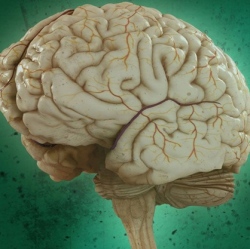
Alzheimer’s may in some cases be as manageable as HIV/Aids by 2025, the head of Britain’s new Dementia Research Institute (DRI) predicts. Professor Bart De Strooper said he hoped to see a time in the near future when the condition could be stabilised even if it proved impossible to cure.
There is even a chance that the brain could re-wire itself and restore lost mental ability once progress of the disease has been halted, he believes.
Speaking after the announcement of his appointment as director of the £250 million UK DRI, the world-renowned Belgian neuroscientist told the Press Association: “We won’t be celebrating in 2025 that dementia is cured, but I hope that by then there will be groups of patients who can be treated in much the same way HIV-Aids is treated today.
“I believe it will happen. I’m very optimistic – the brain is the most plastic organ we have. If you could stabilise the disease at an early stage it might be possible to regain part of the function that seems to be lost.”
Prof De Strooper, who is putting together a multi-disciplinary team of doctors, biologists, engineers and data specialists working from centres across the UK, said he hoped to see “real surprises”.
He added: “I’m a scientist so I don’t look into crystal balls but I would put a lot of money on saying that the next generation will have a completely different view of dementia disorders.
“In just the same way Aids in the 1970s and 80s was seen as a terrible doom or punishment of the gods, but is now manageable and treatable. Cancer has gone through a similar process – the way we look at cancer today is quite different from what it was a generation ago.
“I think we are already further on than many people believe.”
In a key shift to previous approaches he intends to broaden research beyond the “amyloid hypothesis” on which so much work up until now has focused.
The hypothesis places clumps of sticky protein fragments in the brain known as beta-amyloid at the heart of Alzheimer’s.
Beta-amyloid “plaques” are recognised as a key hallmark of the disease, but precisely what their role is remains unclear.
Prof De Strooper said: “The amyloid hypothesis is an old hypothesis from 25 years ago. Since then we have acquired so much information that can’t fit into the simple amyloid hypothesis.
“It would be an over-simplification to reduce Alzheimer’s to amyloid. The main problem is not that the hypothesis is untrue, but it is very old-fashioned, simplistic and linear.
“Dementia is likely to be much more complicated, in a similar way to cancer, which we now know is caused and driven by a multitude of factors. I hope progress in tackling dementia will go faster than it did with cancer.
